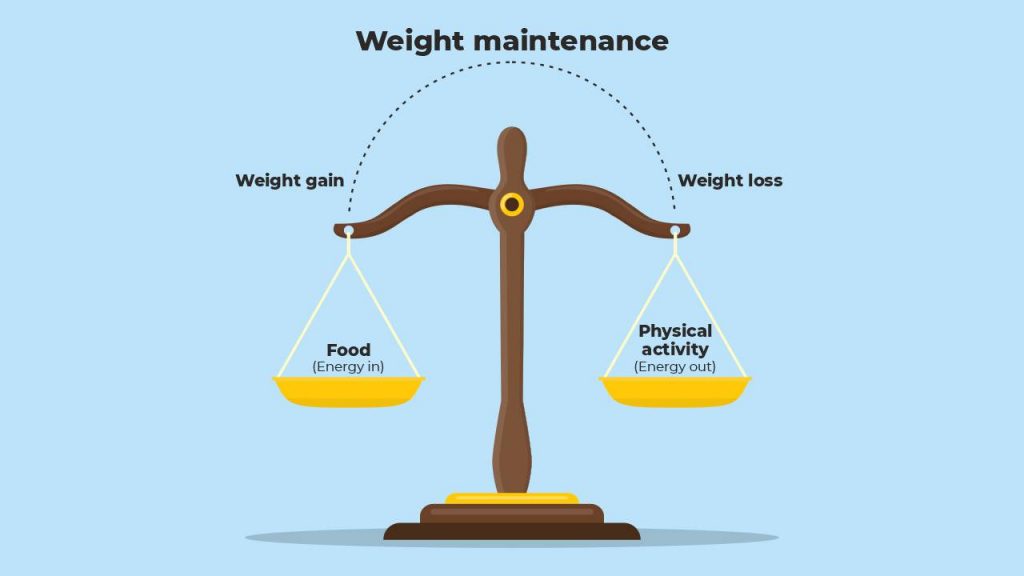The topic ‘Weight Loss’ is often discussed by many people to improve their lifestyle and personality. Weight loss is a process which is influenced by various phycological and behavioural factors. Understanding the science behind weight loss helps you to make smart decisions in your journey and gives you prompt results.
To understand the science of weight loss everyone should be aware of the key principles and terms like Metabolism, Energy Balance, Diet Plan, Muscle Mass, Genetics, Workout Plan, Fat, Hormones and others.
1. Metabolism:
Metabolism is a biochemical process which occurs in every organism. The food and oxygen converted into energy is the main key function of this process.
Metabolism varies from person to person due to the combination of genetics, psychological and environmental factors.
Metabolism can be divided into two main categories: Catabolism and anabolism.
- Catabolism:
It is a set of metabolic processes in living organisms that involves the conversion of macromolecules into simpler ones, increasing energy. During this reaction, large molecules like fats, carbohydrates, and proteins are broken into smaller molecules like fatty acids, glucose and amino acids. - Anabolism:
It is a set of metabolic processes in living organisms that involves complex molecules into simpler ones with the release of energy. The process of anabolism is also known as biosynthesis. The process is essential for building and maintaining cellular structures as well as the growth, repair and reproduction of living organisms.
2. Energy Balance:
Energy balance plays a crucial role in fat loss and to maintain this you need to maintain the negative energy balance, which means that your energy burned should exceed your energy intake. Here are some simple tricks and tips to achieve this simple process understand your body and take necessary actions.
- Reducing energy intake:
You can decrease your energy intake by consuming fewer calories through your diet. By eating smaller portions, and choosing lower-calorie foods anyone can achieve the results. It’s often recommended not to skip nutrition and proper meals and not to take any excessive fats and calories in it. - Regular Exercise:
Regular exercise is an essential component of a successful weight loss program. It also offers many health benefits when combined with a balanced diet and consistency. - Nutrient Quality:
The quality of food plays a crucial role than the quantity of food. Eat a balanced and nutritious diet like fruits, vegetables, whole grains, lean proteins and whole grains. - Monitoring and Adjusting:
Tracking and monitoring your calorie intake can help you stay on track with your weight loss goals. Adjustment is also necessary according to your body’s challenges so it is essential to adjust your plan accordingly.
3. Hormones
Hormones play a significant role in various aspects of the weight loss journey. These can influence fat shortage, metabolism, appetite and overall combination of the body.
Understanding the role of hormones in weight loss is essential because it may can make it more challenging to lose or maintain a healthy weight. Lifestyle factors such as sleep, diet, regular exercise, and stress management can significantly influence these hormonal processes. If you suspect hormonal imbalances are affecting your weight, it is advisable to consult with a healthcare provider with appropriate tests and proper guidance on treatment and lifestyle modifications.
4. Fat and Fat Loss
The science behind fats in the body explains their structure, functions, metabolism and their impact on health. Fats which are also known as lipids, contain more calories than carbs and proteins.
Fats are important in our body for many reasons energy sources, organ protection, temperature regulation, Hormone production, Brain Function, and essential fatty acids. While fats are important for our body it is essential to consume only good fats like nuts, seeds, olive oil, fatty fish etc. Excessive consumption of unhealthy fats like saturated fats which are found in fried food and processed food can lead to heart problems and other health diseases.
The key is to use the right type of fat control in overall calorie intake with regular exercise and focus on the overall quality of food rather than quantity, which leads to a healthy and lean body.
5. Genetics
It is important to know that genetics is just one piece of the puzzle in the journey of weight loss. Genetics may have a role in having weight loss in short or long time periods but it doesn’t work on not having a good body fat and healthy lifestyle.
Lifestyle factors such as a balanced diet, proper workout plan, sleep, and stress management can give you proper results with a positive approach towards your weight loss journey.
Here are some key takeaways:
- Focus on lifestyle factors
- Seek Professional Guidance
- Positive Approach
- Long Term Perspective
It is not necessary or advisable to depend on genetics for weight loss. It is just one of the many factors that may influence time gaps in results which depends upon individuals.


This article offers a fascinating perspective on the subject. The depth of research and clarity in presentation make it a valuable read for anyone interested in this topic. It’s refreshing to see such well-articulated insights that not only inform but also provoke thoughtful discussion. I particularly appreciated the way the author connected various aspects to provide a comprehensive understanding. It’s clear that a lot of effort went into compiling this piece, and it certainly pays off. Looking forward to reading more from this author and hearing other readers’ thoughts. Keep up the excellent work!
Great article! I appreciate the clear and insightful perspective you’ve shared. It’s fascinating to see how this topic is developing. For those interested in diving deeper, I found an excellent resource that expands on these ideas: check it out here. Looking forward to hearing others’ thoughts and continuing the discussion!
You have mentioned very interesting details! ps decent
web site.Raise blog range
This article is a gem! The insights provided are very valuable. For additional information, check out: DISCOVER MORE. Looking forward to the discussion!